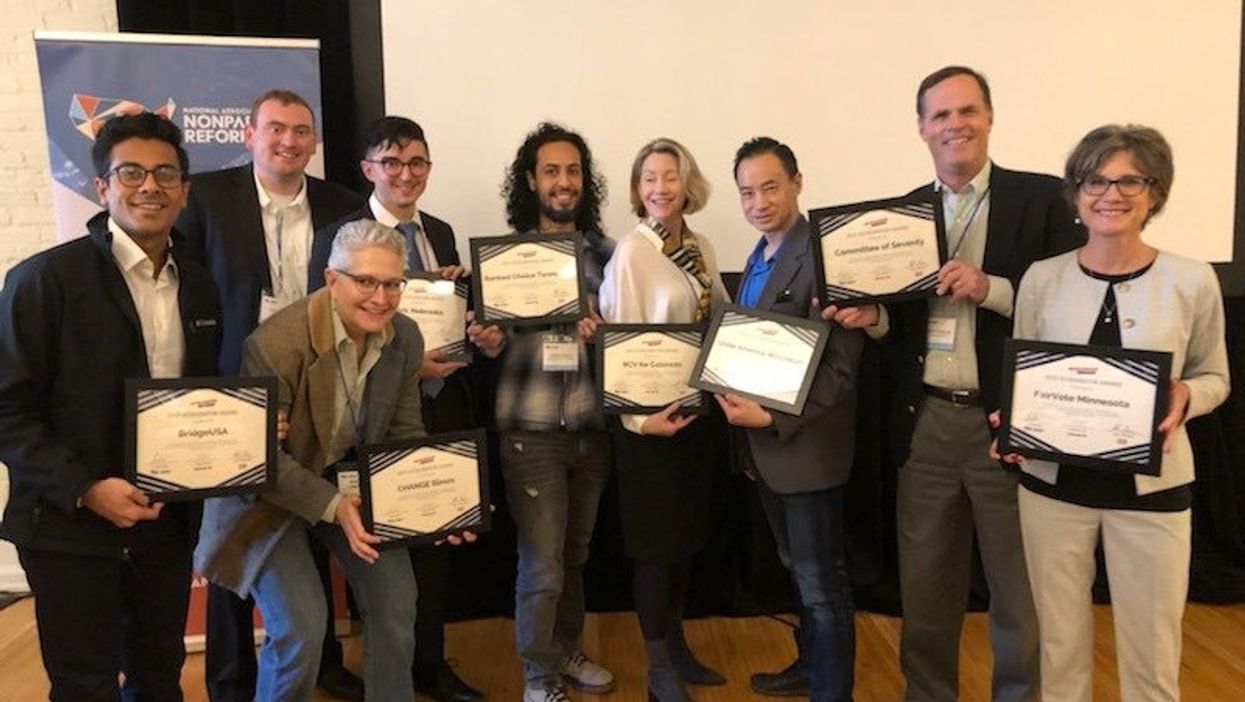DENVER — Thirteen local good-government groups across the country have been awarded a combined $250,000 to advance their causes.
The money is going to the inaugural winners of the Accelerator Awards, chosen from 115 applications around the country. The prizes are the creation of Unite America in partnership with RepresentUs. The two are among the most prominent non-partisan groups advocating for fixes to the problems of dysfunctional democracy.
The money was awarded to both fledgling and established organizations to advance their work in three areas: ending partisan gerrymandering, giving voters more power in elections and getting more citizens involved in elections.
The winners were:
- Change Illinois, which is working to establish an independent redistricting commission.
- League of Women Voters of Nevada, which is pushing an independent redistricting commission ballot measure.
- Unite America Wisconsin, which is focusing on ending gerrymandering by placing referenda on municipal ballots across the state.
- Common Cause North Carolina, which is working to pass a bill to establish an independent redistricting commission.
- Ranked Choice Tennessee, which is trying to establish ranked-choice voting in local and state elections, starting with attempting to place an initiative on Nashville 2020 ballot.
- FairVote Minnesota, which is working to advance ranked-choice voting throughout the state, for efforts to get measures on the ballot in Bloomington, Minnetonka, Rochester and Red Wing.
- RCV for Colorado, which is pushing ranked-choice voting throughout the state.
- The Committee of Seventy, which is leading a coalition of groups pushing to open Pennsylvania's primaries to independent voters.
- New Mexico Open Elections, which advocates for open primaries in the state.
- Civic Nebraska, which is working to expand use of vote by mail in the state.
- Common Cause Maryland, which is working to expand vote by mail in the state.
- Bridge USA, which is working on 25 college campuses to develop future leaders for the democracy reform movement.
- New Hampshire Ranked Choice Voting, a new effort focused on getting ranked-choice voting in the state.
The winners were announced here last week at the annual summit of the National Association of Nonpartisan Reformers. The prize money, awarded by a panel of five judges, ranges from from $10,000 to $25,000.
Disclosure: One of the judges was Betsy Wright Hawkings, whose husband, David, is The Fulcum's editor-in-chief.




















